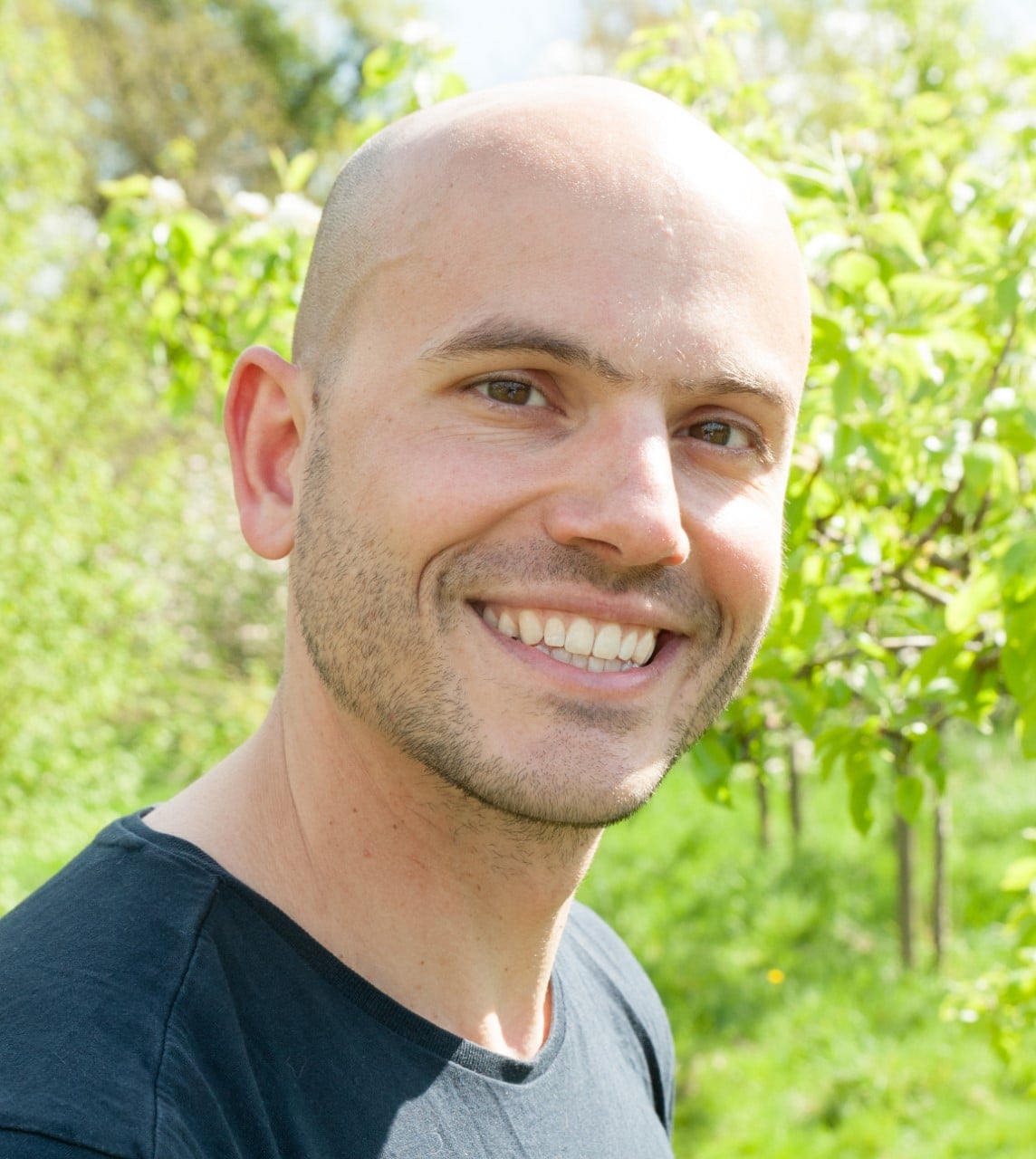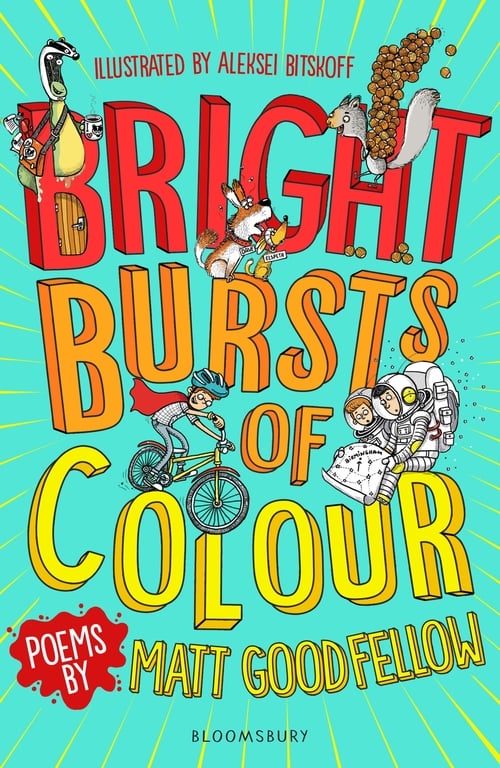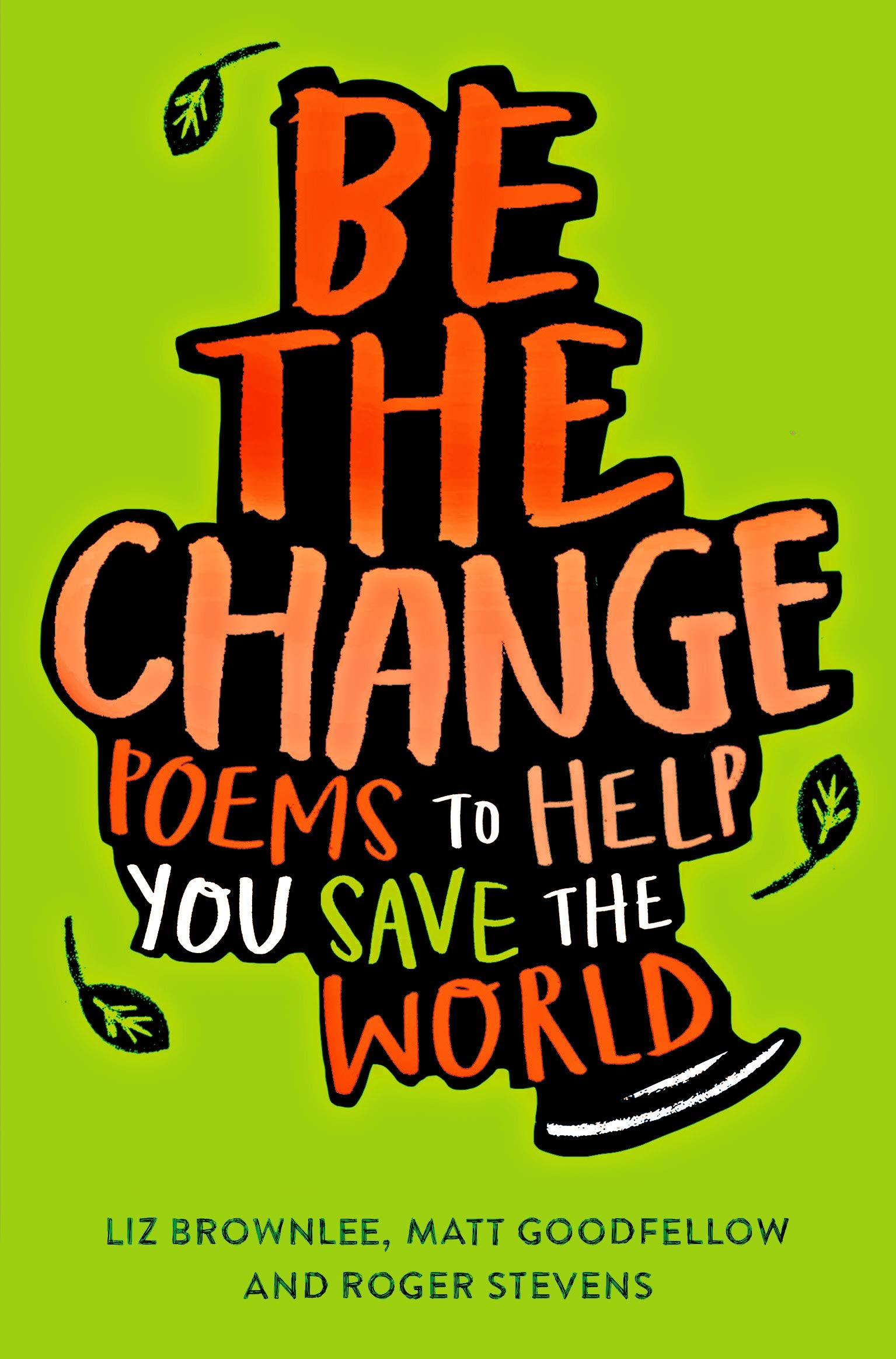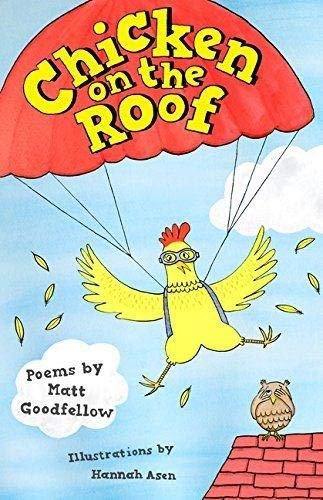Ahead of its release on February 6th, Matt Goodfellow joins us in The Reading Realm to talk about his wonderful new anthology of poems called Bright Bursts of Colour…

Without giving too much away, can you tell us about Bright Bursts of Colour and the inspiration behind it?
I wanted to write a collection of poems that contained the full range of human emotions. When I read a book of poetry, I want to laugh, cry, think and wonder – because that’s who I am as a person. I don’t want every poem to make me laugh, or I’ll get bored; similarly there has to be light and shade. We’re all multi-faceted individuals living real lives and Bright Bursts of Colour is a reflection of that. The poetry that interests me the most enables the reader to get closer to the writer in some way, whether that’s the real person or the person the writer is pretending to be. There is a lot of me in this book: I can be incredibly silly and loud, but also very quiet and thoughtful. There has been a lot of laughter, but also swathes of sadness, too. Poets are people watchers: the life I have led, and the lives I have seen going on around me, inspired the book.
I really love the poem ‘David’ – it beautifully explores the theme of friendship and how we feel when a friend moves away. Can you tell us about this poems and what it means to you?
When I was at primary school, there was a kid who could draw planes really well. He moved away when I was probably in Year 4. I can’t actually remember his name, but I found myself thinking of him one day, wondering where he is now; does he still draw planes? Is he a pilot? Or has he not drawn a plane for years and years?
I spent over 10 years working as a primary school teacher and you would often get these kids arriving in class and then disappearing off somewhere else in the country or the world quite quickly. I’d watch relationships forming between them and other kids only for it to be over really quickly. It interested me – you can find a similar feeling in a few of the poems, ‘Liam’ for example. Transience.

In ‘The Not a Poem Poem’ you explore what poems are and what they’re not. What do you think the common misconceptions around poetry are?
People often think that poetry is just one thing: that it has to rhyme; has to be complicated; has to shimmer with similes and metaphors; has to use complicated language etc and they miss the point that poetry can, of course, do all of those things, but it also doesn’t have to! The purest poems I have seen children write contain the truth, their truth – in their words, written in the voice they think in. Poetry is a shape-shifter, like mercury. The best way to get comfortable with it, in my opinion, it to get involved: read it, speak it, feel it.

In ‘Strest’, poor Charlie faces lots of revision and tests and you very cleverly describe their impact on him. What would you change about the current National Curriculum in the UK and why?
Wowsers, that’s a big question!
In terms of the NC, I think enough has been written about the narrowing of the curriculum – and most sensible people can see that the arts have kind of taken a back seat due to external pressures. I see much less drama being taught, much less time to play – often poetry is marginalised because there is no ‘check list’ for what makes a good poem so therefore they don’t appear on writing portfolios that are moderated at the end of Y6, and this then filters down to other year groups. It’s so vital that there is time for exploration, play, creativity – ideas and words, thoughts and feelings, but it’s so difficult for teachers to do this currently. I was in Y6 for years and know firsthand the strain everybody is under, adults and children. Everybody within the system is working flat out to do the best they can – and I am in awe of how teachers can do it day in, day out. It is the people outside the system, who have no experience of school life, yet make the rules, that need to change: a lot of schools I visit are being run by business people nowadays, without any culture of kindness. Children are not cells on some spreadsheet. Cohorts do not just ‘improve’ year on year as if they are points on a graph.
Having said this, I visit many schools who manage to nurture warm, creative environments despite all these pressures.
Poetry is an area where teachers and children can find some respite from all the rules. Where they can simply play without worrying whether they are right or wrong.

In light of the moving poem ‘Broken’ where the lonely narrator wishes her mum’s phone was broken, I wondered what your feelings were about the role of technology and social media in our lives?
I think there’s always new developments in our lives – and I think moderation is always the key.
When reading the anthology, I found myself quite moved and teary at points and then at other times laughing and nodding along in agreement. How do you decide the order of the poems and how do you balance the more serious side of things with the funnier, lighter side?
Well, a good collection has to flow – you have to print them all out, shuffle them about and read and re-read until you are happy. Working with a good editor also helps. I like to start and end a collection with poems that are representative of the feel of the whole book – I also like the last poem in a collection to be about hope.
What advice would you give to young poets?
Read, read, read. Keep a notebook. Find poems and poets that speak to you. Always believe in the power of your truth, your story, your mind, your ideas. Listen to music. Watch the sky.
Finally, can you describe Bright Bursts of Colour in three words?
An excellent book!

